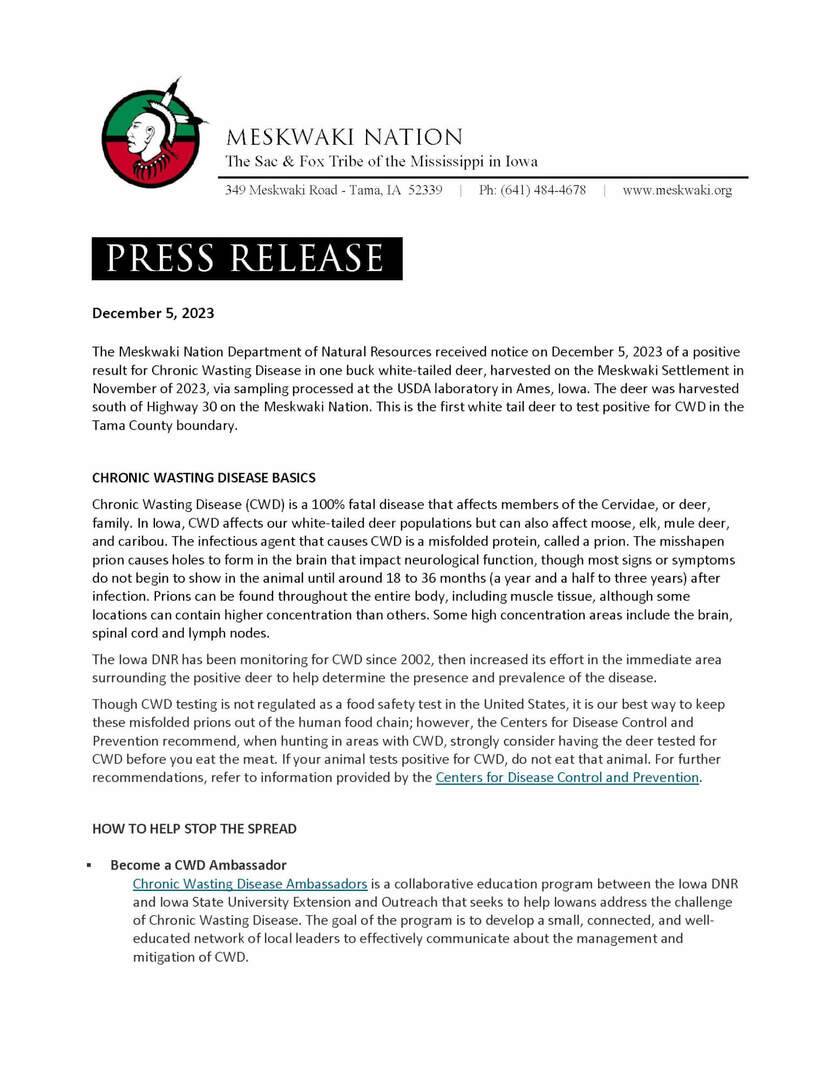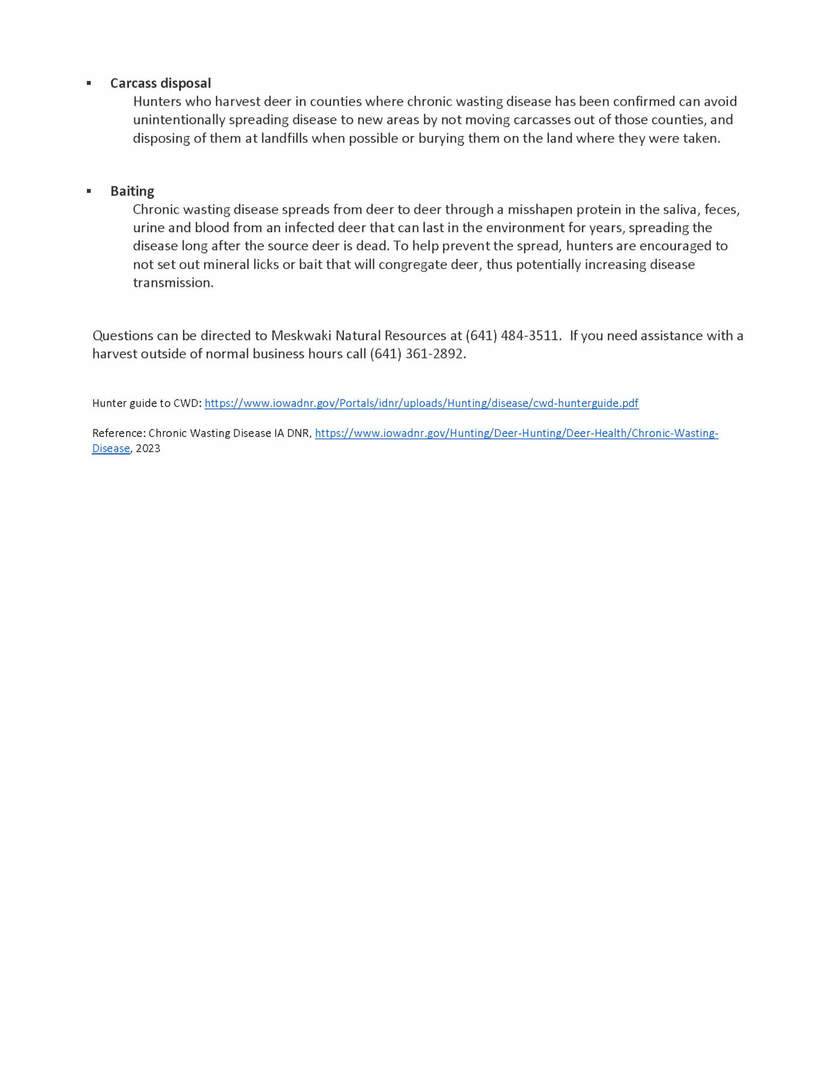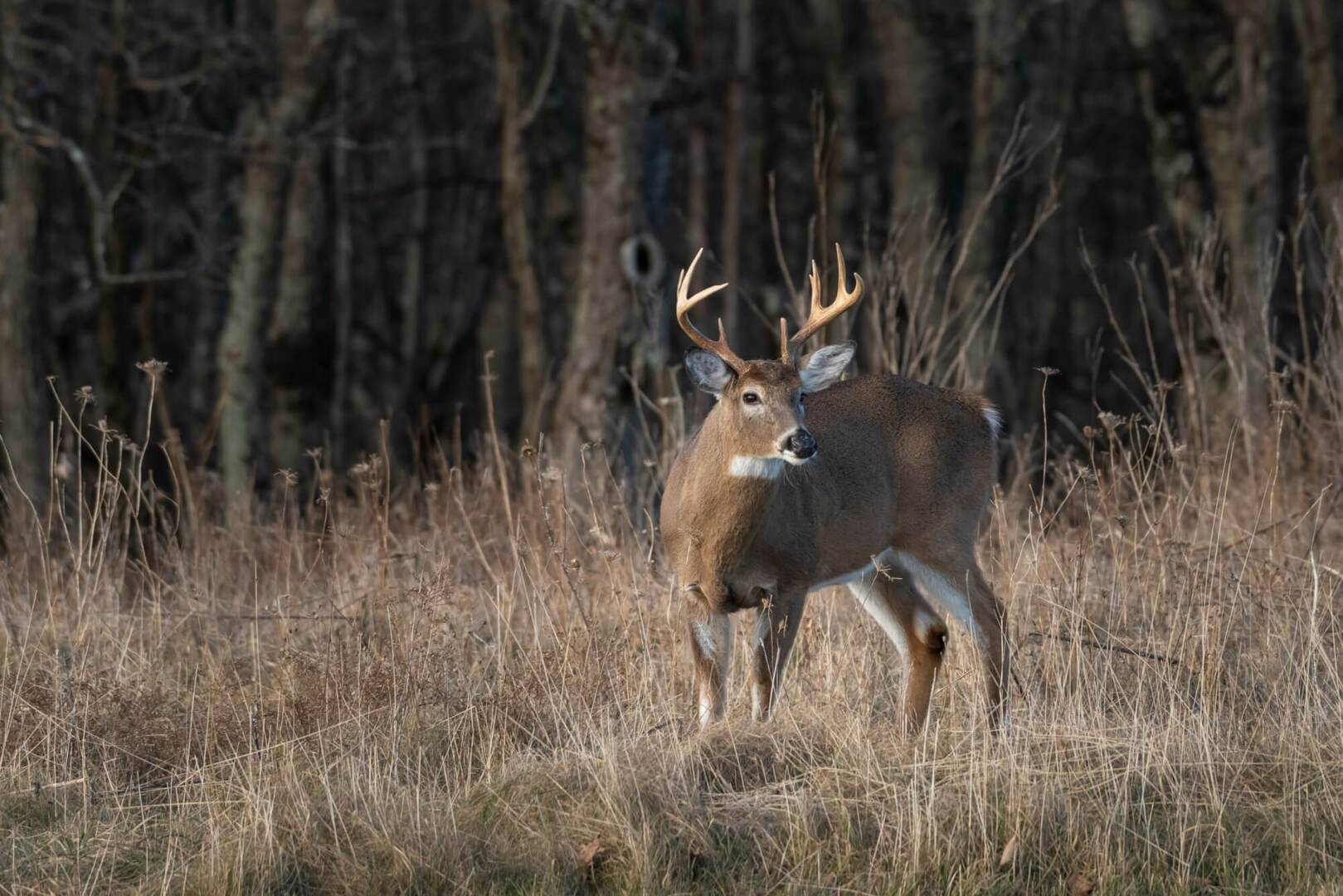The Meskwaki Nation Department of Natural Resources received notice on December 5, 2023 of a positive result for Chronic Wasting Disease in one buck white-tailed deer, harvested on the Meskwaki Settlement in November of 2023, via sampling processed at the USDA laboratory in Ames, Iowa. The deer was harvested south of Highway 30 on the Meskwaki Nation. This is the first white tail deer to test positive for CWD in the Tama County boundary.
CHRONIC WASTING DISEASE BASICS
Chronic Wasting Disease (CWD) is a 100% fatal disease that affects members of the Cervidae, or deer, family. In Iowa, CWD affects our white-tailed deer populations but can also affect moose, elk, mule deer, and caribou. The infectious agent that causes CWD is a misfolded protein, called a prion. The misshapen prion causes holes to form in the brain that impact neurological function, though most signs or symptoms do not begin to show in the animal until around 18 to 36 months (a year and a half to three years) after infection. Prions can be found throughout the entire body, including muscle tissue, although some locations can contain higher concentration than others. Some high concentration areas include the brain, spinal cord and lymph nodes.
The Iowa DNR has been monitoring for CWD since 2002, then increased its effort in the immediate area surrounding the positive deer to help determine the presence and prevalence of the disease.
Though CWD testing is not regulated as a food safety test in the United States, it is our best way to keep these misfolded prions out of the human food chain; however, the Centers for Disease Control and Prevention recommend, when hunting in areas with CWD, strongly consider having the deer tested for CWD before you eat the meat. If your animal tests positive for CWD, do not eat that animal. For further recommendations, refer to information provided by the Centers for Disease Control and Prevention.
HOW TO HELP STOP THE SPREAD
- Become a CWD Ambassador
Chronic Wasting Disease Ambassadors is a collaborative education program between the Iowa DNR and Iowa State University Extension and Outreach that seeks to help Iowans address the challenge of Chronic Wasting Disease. The goal of the program is to develop a small, connected, and well-educated network of local leaders to effectively communicate about the management and mitigation of CWD.
- Carcass disposal
Hunters who harvest deer in counties where chronic wasting disease has been confirmed can avoid unintentionally spreading disease to new areas by not moving carcasses out of those counties, and disposing of them at landfills when possible or burying them on the land where they were taken.
- Baiting
Chronic wasting disease spreads from deer to deer through a misshapen protein in the saliva, feces, urine and blood from an infected deer that can last in the environment for years, spreading the disease long after the source deer is dead. To help prevent the spread, hunters are encouraged to not set out mineral licks or bait that will congregate deer, thus potentially increasing disease transmission.
Questions can be directed to Meskwaki Natural Resources at (641) 484-3511. If you need assistance with a harvest outside of normal business hours call (641) 361-2892.
Hunter guide to CWD: https://www.iowadnr.gov/Portals/idnr/uploads/Hunting/disease/cwd-hunterguide.pdf
Reference: Chronic Wasting Disease IA DNR, https://www.iowadnr.gov/Hunting/Deer-Hunting/Deer-Health/Chronic-Wasting-Disease, 2023



